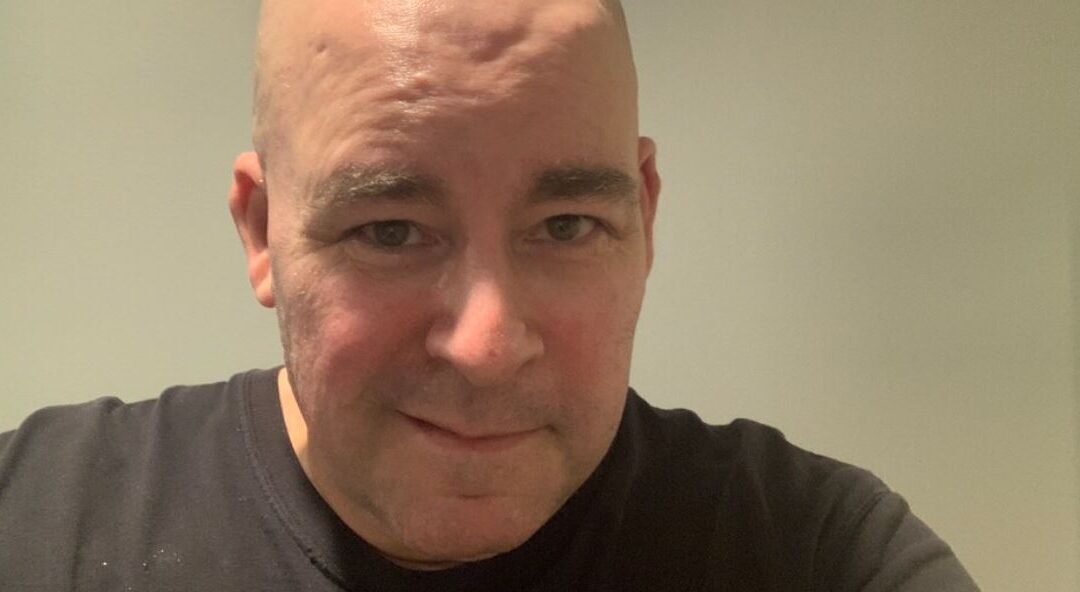By PAUL NATINSKY
Read full article on LinkedIn
In August I had a stroke. The southwest zone of my brain exploded and left a bright white relief map of the Great Lakes on a CT scan. Blood pressure of 220 over 110—twice the normal measure—powered what is politely called a “cerebrovascular accident.”
It was the single biggest change in my life—in every way. I felt like a baby. I couldn’t find words. I couldn’t remember how to find things on my phone. My brain seemed to process information a beat slower. I couldn’t do anything practical with my right arm or right leg.
I felt completely helpless. It was terrifying. The first few days were in ICU, where people spoke in soft voices and the world was a strange and fuzzy place.
My next stop was in a general unit where inexperienced and immature nurses paid scant attention to me and were incredibly insensitive to my lack of mobility, cognitive ability and the constant buzzing and beeping of disconnected monitor connections.
After those horrific days, the sun crested the horizon and I found myself in a rehab unit where I caught 10 hours of blissful sleep.
I also found myself with three therapy sessions per day and many hours to think with the 25% of my brain that was functioning. As I squeezed clay clumps, sorted beads, stumbled around on a leash and hacked my way through tongue twisters, I thought a lot about my life and what I’d do if I got it back.
I took an inventory of the things most important to me and the places I’d gone wrong. I made resolution-like vows. I pledged to stop drinking, lose weight and let go of the anger. I promised to rededicate myself to my family.
Others’ reactions to my misfortune led me to understand that colleagues respected me more than I had thought and friends cared more than I had imagined.
I was grateful to the nurses, physical therapists and the army of shot-givers, pill-delivery personnel, vital signs measurers and food-bringers who were unfailingly kind and patient.
I learned more about myself and about life during the three weeks of time I spent in what my 14-year-old daughter called “the joint” than I had in many years.
It was a new beginning for me. A chance to rebuild with the knowledge of a lifetime to guide me. While no one could promise or predict how far my recovery would go, and the doctors were cautious with their prognoses, the nurses and physical therapists told me the speed of my early recovery boded well for me and, with work, it was possible to make a full recovery. It wasn’t what they said, but the reassuring yet brutally pragmatic way they put things that buoyed my spirits.
Turns out the doctors, nurses and therapists were right. They were also right about the long road and hard rehab it would take to reach the Promised Land.
It’s now a little more than seven months since my cranial tsunami and I am walking, driving and—most importantly—typing almost as well as I used to.
The pace has been tortuously slow. I started out walking like a zombie extra on The Walking Dead and have since upgraded my gait to that of Superbowl quarterback Matt Stafford in the fourth quarter. My right hand and arm from the shoulder down have improved from a buzzing theater of numbness and pain to a tingling in my fingertips. I have rehabbed my right arm from a condition known as “neglect,” in which you don’t consistently know where your arm is in space (yes, that’s a thing) to something approaching normal.
The good news is I am seven months into what is likely a 12- 18-month recovery.
On top of rebuilding my mind, body and business, I’m pushing hard to be a part of my own family again. One daughter heads off to college in the fall just as the other one finishes her first year of high school. A new sense of appreciation and gratefulness fills me as I look upon my family and friends.
As this iceberg gently pokes its tip above the waves, there is so much to say about this first seven months. I hope much of it will be helpful to those who have had a stroke and the people who care for and about them.
But I think there are deeper lessons here about humanity, humility and finding a warm, calm place in the world to call your own.
Talk to you soon. Be kind to one another.

